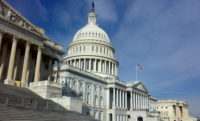A Senate subcommittee has turned the spotlight on Caterpillar Inc.'s overseas tax payments, contending that the giant equipment maker shifted billions in profits to a affiliate based in Switzerland, where taxes are lower than in the U.S.
The panel's chairman, Sen. Carl Levin (D-Mich.), released a report on March 31 criticizing Caterpillar's Swiss tax plan. The report stated that from 2000 through 2012, the company allocated more than $8 billion in non-U.S. profits to its Swiss unit and deferred paying $2.4 billion in U.S. taxes on those earnings.
Levin followed up the next day by grilling officials from Caterpillar and its tax advisor, PricewaterhouseCoopers LLP (PwC), about the Swiss tax arrangement at a lengthy hearing of the panel—the Senate Homeland Security Committee's permanent subcommittee on investigations.
Caterpillar and PwC witnesses defended their company's actions and tax strategy, saying they complied with the tax code and related case law.
Levin's questions and comments ranged from matter-of-fact to pointed to heated, but despite that heat, the ramifications of the subcommittee's probe and hearing are unclear.
Several senators on the panel said the Caterpillar example points to the need for overhauling the U.S. tax code, with some noting that the U.S. corporate rate of 35% is the highest among major developed countries. But Congress almost certainly won't pass a broad-based tax reform measure this year.
Levin said he supports tax reform but has a more targeted aim, adding that he wants the "loophole" closed for overseas tax transfers like Caterpillar's.
But even a narrower tax-code change like that would require congressional approval and face a long, uphill path.
At the hearing, Caterpillar's witnesses were the last to testify, beginning their statements about three hours into the hearing, which stretched more than four and a half hours.
Julie A. Lagacy, vice president for Caterpillar Inc.’s financial services division, told the subcommittee that “Caterpillar has fully complied with U.S. tax law.” She added, “Caterpillar’s philosophy is that our business structure drives our tax structure. We do not invent artificial tax structures.”
Thomas F. Quinn, a PricewaterhouseCoopers partner, said, “We firmly believed then, and firmly believe today, that the tax services we provided and the positions that Caterpillar took in that regard, complied with the law and were entirely appropriate.”
Some senators on the panel sided with Caterpillar. Sen. Rand Paul (R-Ky.) said that the company should get “an award” for its longevity, and for being a major U.S. employer. “We’ve got the wrong people on trial here,” Paul said. “The tax code needs to be on trial.”
Sen. Rob Portman (R-Ohio) said, “To me, the problem here is not Caterpillar, it’s a broken tax code.”
Levin agreed that tax reform is "long overdue." But he added that there are "loopholes" in the code that give companies incentives to shift profits to "tax havens" overseas.
He said, "We ought to close those tax loopholes and not wait for a total reform of the tax code because that could be an endless wait."
Reuven S. Avi-Yonah, a professor at the University of Michigan School of Law, said that the Internal Revenue Service should have “attacked” the Caterpillar transaction on more than one tax-code-related issue.
“I do think that they should have done a better job in this particular case,” Avi-Yonah added.
Caterpillar is the latest major U.S. company to come under the subcommittee's scrutiny. Earlier hearings focused on Apple, Microsoft and Hewlett-Packard. But Caterpillar is the first heavy-manufacturing company it has investigated.



Post a comment to this article
Report Abusive Comment